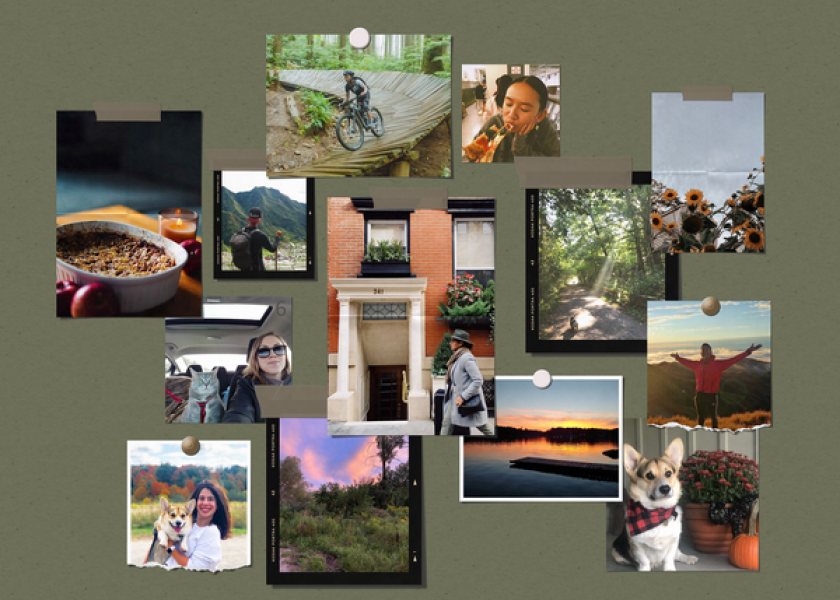
Airports create and represent obstacles that only delay my travel goal. To put as much time and space between myself and the predictable pattern of life. Which, over the course of time has lulled my brain into a certain complacency. Robbing my soul of the creative energy that only an abrupt departure from can revive.
You may read that as a dramatic characterization of just needing a break. But, scientific research is on my side, justifying what I’ve always instinctively perceived to be true. Travel is much more than a luxury. Rather, it’s a physiological prerequisite to solving complex problems.
BREAKING ROUTINE AND PREDICTABILITY
Most days I can, with a reasonable degree of accuracy, predict what my day will be like.
Wake up. Hop on the subway. Get coffee. Check emails. Meetings. Emails. Coffee. More emails. More meetings. Lunch. Followed by a combination of meetings and emails. Until 5 o’clock when I go home and try to forget it all before repeating the process.
A study from Indiana University tasked two groups of students with listing as many modes of transportation as they could. One group was told that the task originated from a group of Indiana University students studying in Greece. The second group was told that it was developed by students studying in Indiana. The students who were told that the task originated by Indiana University students abroad listed far more modes of transportation than those who were told the students were local.
The hypothesis is that distance from a problem allows students to think about that problem more broadly. Distance forces my brain to recalculate details of the issue at hand. It’s the same reason I am convinced I have a solution for the problems in the Middle East and climate change. Yet, somehow can’t figure out how to keep the fiddle leaf fig tree in my apartment alive.
The human brain is constantly optimizing for efficiency. It identifies repeated patterns and starts to allocate less cognitive resources to those tasks. This results in less creative execution of those tasks. Email, meeting, email, meeting, coffee, email…
ESCAPISM ISN’T THE ANSWER
Travel helps activate the benefits that time and space afford. But, we must travel with the correct mindset. It’s not enough to fly to Cancun and sip margaritas on the beach all day. Nor is it necessary to be completely removed from civilization under an oath of silence with Tibetan monks. Escapism is not going to rejuvenate your creative energy, or give you the perspective you need to solve complex problems. They will only be waiting for you when you get back. It’s only when we embrace the things that stump us from a distance that we can see the problem from a more productive perspective.

TRAVEL REFRAMES YOUR PERSPECTIVE
But, perspective alone isn’t the only benefit of getting away from it all. Research from France and the Kellog School of Management in Chicago found that students who lived abroad are more likely to overcome ‘functional fixedness bias.’ Meaning, they are able to find new applications for familiar objects and tools. The human brain is infinitely beautiful in its ability to recognize patterns and automate them. Thus, freeing up more resources for more complex problems. The problem is that we can become so fixated on what we know that it makes creatively breaking those patterns more difficult. The brain is generally not good at finding new applications or meanings for familiar objects, concepts, or ideas.
In the Duncker problem, students are given a cardboard box that contains a candle, some pins, and matches and are told to find a way to fix the candle to the wall so that it can burn normally and not drip any wax on the floor. Less than 25% of students are able to come up with a solution. Most will conclude that the puzzle is impossible and give up. But, students who lived abroad were 20% more likely to find a solution. Broader exposure to cultures, ideas, and traditions around the world expose us to the possibility that an object as familiar and mundane as a cardboard box may be used as much more than a container.
When you say your brain needs a vacation, you are probably right. However, travel isn’t about turning your brain off. Rather, it’s about engaging it in a new way. Forcing it to relearn common patterns in a different context. Like, having to order your morning coffee in another language. Or, introducing your palate to a new, exciting flavour. Or, simply giving yourself the time and space to reignite your creative energy to return to work refreshed. And, let’s be honest, a cold margarita on the beach doesn’t hurt either.



